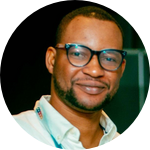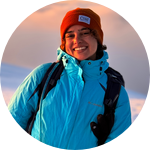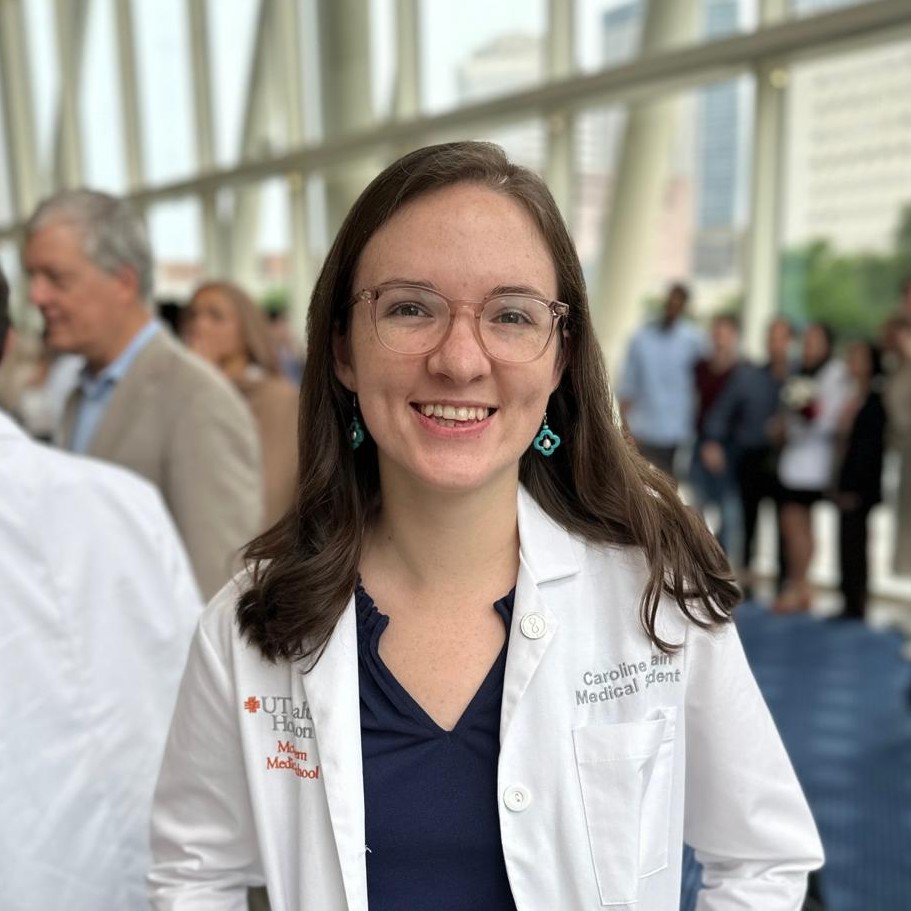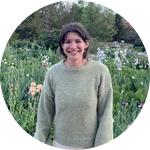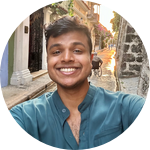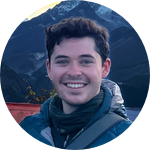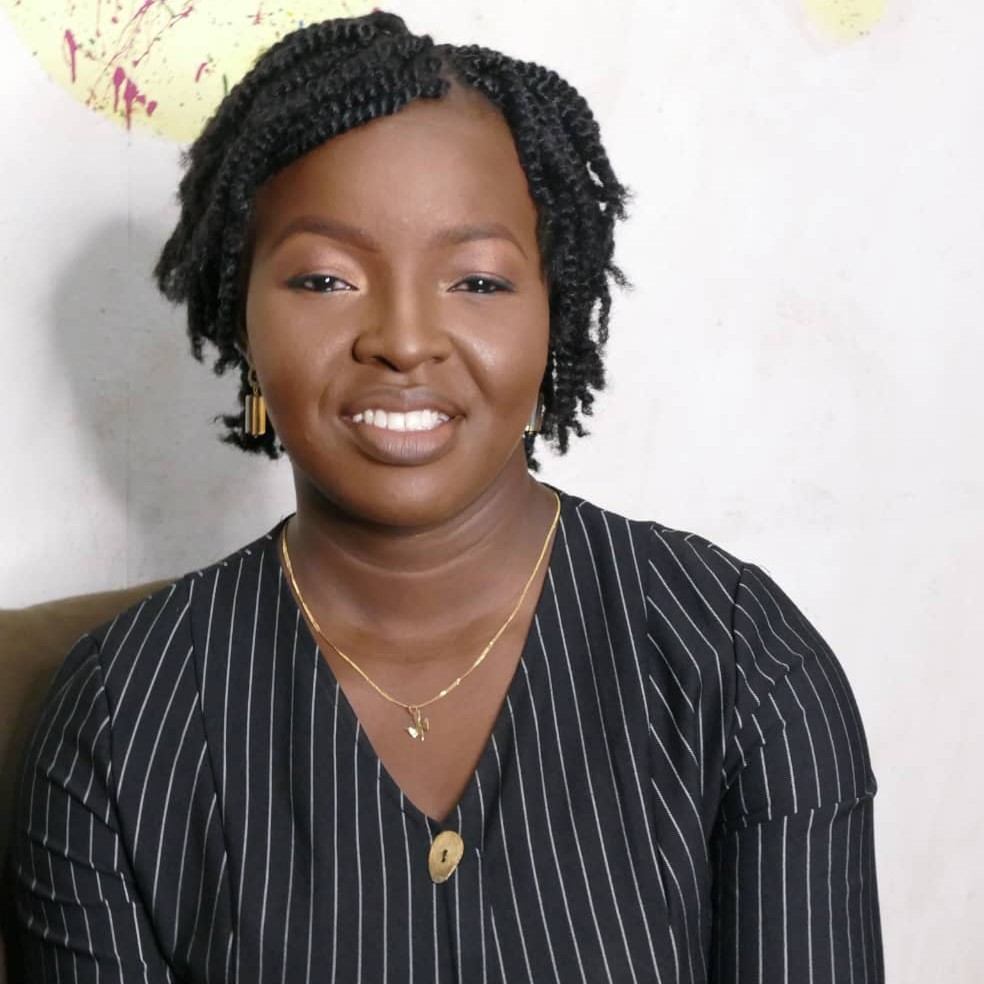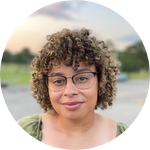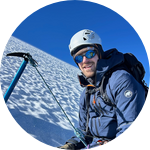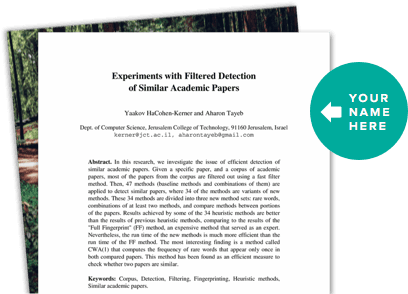About This Project
Schistosomiasis is a parasitic disease linked to cancer and infertility, spread by freshwater snails, that affects millions of people in Africa. We hypothesize that a $2.50 microscope (Foldscope) can detect schistosomiasis in rural areas of Nigeria in a community-led way. We aim to study the source of the illness via satellite and drone mapping of snail habitats to predict hotspots of infection, supporting locally led efforts for disease control in line with WHO recommendations.
Ask the Scientists
Join The DiscussionWhat is the context of this research?
Schistosomiasis is a waterborne parasitic disease transmitted by freshwater snails. It affects over 200 million people globally, especially in tropical regions where people rely on surface water-bodies for daily needs. In Nigeria, it is a major public health concern, yet diagnosis often requires costly microscopes, electricity, and trained lab personnel—tools out of reach in many rural communities. Female genital schistosomiasis (FGS) is of particular concern due to its links to infertility, cervical cancer, and HIV risk. We’re exploring how the Foldscope (a $2.50 paper microscope invented by our mentor, Manu Prakash) can bring diagnosis directly into communities—no electricity or lab needed. We are exploring environmental detection straggles to complement this. This approach emerged from conversations with physicians in Nigeria, and is designed to meet real needs. We’ve validated this toolkit in our Houston lab and are now ready to pilot it in Ogun, Nigeria.
What is the significance of this project?
In many schistosomiasis-endemic areas, patients go years without getting tested—not because the disease isn’t serious but because diagnostic tools are inaccessible. This project aims to bring diagnostic tools to these highly burdened communities. By evaluating a low-cost diagnostic toolset—a Foldscope alongside a microfluidic filtration device—alongside long-term, community-led partnerships, we hope to offer a blueprint for how diagnostics can be made truly accessible. If successful, this model could be scaled across Nigeria and beyond, advancing WHO goals for schistosomiasis control. Furthermore, we aim to expand Chelsea Wood's drone mapping model to inform communities of high-risk areas of exposure. We’ve already received encouraging support from the National Schistosomiasis Program Manager in Nigeria, who expressed interest in integrating our solution into the national strategy if results are strong.
What are the goals of the project?
This pilot study will test whether community health workers in Nigeria can use our toolkit to accurately detect schistosomiasis in real-world settings. We’ll train and compensate local workers, equip them with Foldscopes and microfluidic slides, and evaluate accuracy, usability, and community feedback. Our lab model in Houston showed (See Lab Note 1) 79% accuracy, 72% sensitivity, and 100% specificity when untrained users identified eggs using the Foldscope, with an average time of 4 minutes. Now, we want to validate this approach in the field. If successful, we’ll work with national health leaders to expand to more communities and integrate the system into existing disease control programs. On the community level, we are assessing acceptability and feasibility through qualitative methods. Our ultimate goal is to create an affordable, scalable solution that helps eliminate a devastating yet preventable disease—by bringing diagnostics to the people who need them most.
Budget
Funds will cover critical items like a light microscope for reference comparison, PPE and testing consumables, and 500-count prep kits. We are compensating Community Health Extension Workers and providing phones for digital image evaluation. Materials will equip teams in high-burden regions. Each item directly supports decentralized, low-cost, accessible diagnostics where they are needed most. This pilot marks the first crucial phase of a larger effort to scale these tools nationally. Thus far, progress has been fueled by donated Foldscope kits (Foldscope Inc.), murine model materials (Jayhun Lee and Brian Graham), and volunteered time. Nigeria’s National Schistosomiasis Eradication Program Manager has expressed interest in integration—if results support it, this could help shape national strategy and open up new opportunities for long-term collaboration and funding.
Endorsed by
 Project Timeline
Project Timeline
2025 & on (Houston): Lab testing of low-cost prep methods; assess Foldscope accuracy with trained/untrained users.
Apr 9–23 2025, Ogun State, Nigeria: Meetings with Neglected Tropical Disease coordinator. Speak with leadership of local government areas.
July–Aug 2025, Ogun State, Nigeria: Pilot study—test diagnostic workflow and gather data. Drone mapping data.
July 2025: Evaluate parallel study in Tanzania, led by Michael Mihayo.
2026: Scale up under guidance
Apr 17, 2025
Project Launched
Apr 18, 2025
IRB submission in U.S.
Apr 30, 2025
Lab-validated Microfluidic Device to Concentrate Eggs from Urine Samples
Jul 07, 2025
Community discussions & strategic planning
Jul 14, 2025
Parallel study begins with Collaborator Michael Miyaho in Tanzania
Meet the Team
Affiliates
Affiliates
Affiliates
Affiliates
Team Bio
Support a student-led, international initiative! Our team is composed of creatives, students of medicine, engineering, global health, media, and anthropology. We envision a world where accessible, community-driven diagnostic and health solutions empower individuals and prevent disease through sustainable innovation. We aim to plant seeds of interdisciplinary collaborations, innovative technology, and education to grow scalable, effective, and accessible One Health solutions.
William McCarthy
Hi! I am a lifelong learner, medical student at UTHealth Houston McGovern Medical School, researcher, writer, and artist. I am passionate about the natural world and channel my curiosity through biomedical science, microscopy, and art. My past and current research spans neonatology, cancer neuroscience, environmental health, global healthcare innovation, and integrative health, with experience at Colorado University Anschutz Medical Campus and MD Anderson Cancer Center. I approach human health and illness with openness, creativity, and a commitment to interdisciplinary solutions.
Cristina Salas
Cristina is a medical student with experience researching socioeconomic factors that inhibit equal access to healthcare for women in Brazil and currently conducts statistical research on incidence of STDs based on forms of contraceptives for women. Although she is still growing within this field as a new medical student, she has big dreams of applying her upcoming MPH to ensure equal access to healthcare for global populations.
Caroline Crain
Caroline is excited to bring her experience in global health and community-led development to the HIYH team. Her work includes many years with the non-profit AMIGOS, where she worked in rural communities across Latin America to launch community-led sustainable development initiatives as well as five months living in rural Tanzania where she conducted ethnographic research. Now in medical school, she has her sights set on a career in global health genetics where she hopes to empower communities to improve the diagnosis and care of complex genetic conditions. Her approach to global health is grounded in the belief that all communities are capable of solving their most pressing challenges when given the right tools.
Maya Grayck
Maya is a biomedical researcher with a passion for developmental immunology and maternal/fetal health. Her interests and experiences are diverse and include expertise in zoological medicine, clinical research, and basic science research. She is working toward her PhD in Immunology and has goals of becoming an independent researcher who strives to create an inclusive lab space for all to find their voice and passion within science.
Jon Beaubrun
Jon is a chemical engineer with experience working in the semiconductor industry as an engineer focused on technology transfer and high volume manufacturing of transistors. Jon also has experience with technology de-risk and scale-up in controlled environment agriculture working on projects ranging from vetting novel sensing technologies to scaling from R&D/pilot to commercial scale production.
Rakesh Kathiresan
Rakesh brings his experience in clinical research and strategy consulting to the Health in Your Hands team. His experience includes an internship at Boston Children's Hospital, where he conducted research on dietary supplement use among adolescent men. After graduating from Vanderbilt, he moved to Chicago to work at ZS Associates, where he contributed to healthcare projects ranging from territory alignment to oncology market forecasting. Now at UTHealth, he studies cardiovascular risk factors and health outcomes among Turner Syndrome patients with aortic dilation. Rakesh is an avid traveler with a passion for cultural exchange. He is excited to contribute to the team's mission of enhancing access to affordable and reliable diagnostics in rural communities.
Jacob Bartz
Explorer's club member & everybody's best friend!
BS in Biology and Anthropology from Fordham University
MD in progress at UTHealth Houston
Olubukola Adelakun
Olubukola Adelakun has important experience and background in the realm of schistosomiasis, studying the vector of this infectious disease. Currently a lecturer at Oyo State College of Agriculture and Technology in Igboora, Nigeria, she has conducted research on freshwater snails in southwestern Nigeria, focusing on their shell morphology and implications for disease transmission. These snails are the vector for schistosomiasis, and she brings important scientific rigor to the team's drone-mapping component of the current project. She is currently pursuing a Ph.D. in the Department of Zoology at the Federal University of Agriculture, Abeokuta, focusing on the molecular epidemiology of schistosome intermediate snail hosts in Oyo State, Nigeria.
Phillip Koether
Phillip Koether is a Medical Assistant and student at the UHCL. His interests span the gap between social activism and accessible healthcare. A member of the American College of Healthcare Executives, Phillip strives to create a healthier relationship between healthcare organizations and patients.
Nehali Shah
BS in Biomedical Engineering from UT Austin
MS in Biomedical Sciences in progress at UTHealth Houston
Morgan Jibowu, PhD, MPH
Dr. Morgan Jibowu’s professional career reflects a deep commitment to public health and health equity. During the early stages of the COVID-19 pandemic, she served as a contracted Public Health Advisor and Team Lead at the CDC’s Dallas Quarantine Station. She later led COVID-19 response efforts at the Johns Hopkins Health System and worked as an Epidemiologist with the Texas Department of State Health Services, guiding regional surveillance for outbreaks such as Mpox.
Today, Dr. Jibowu conducts innovative research focused on vector-borne and neglected tropical diseases at Baylor College of Medicine’s National School of Tropical Medicine. Her work is focused on the epidemiology of diseases that disproportionately affect underserved and low-resource communities. More specifically, she seeks to understand the complex interactions between "place" and health outcomes, particularly how socioeconomic and built environmental factors influence the risk, transmission, and outcomes of schistosomiasis, vector-borne diseases, and broadly neglected tropical diseases. She seeks to develop One Health prevention and control strategies to reduce the burden of these diseases.
Her work has been published in international journals such as Scientific Reports and the International Journal of Health Geographics. She is also a passionate and accomplished speaker, regularly invited to present at national conferences, universities, and public forums on topics ranging from infectious disease prevention to racial and health equity. Also committed to mentorship and education, Dr. Jibowu strives to cultivate an inclusive research environment that inspires students to pursue careers in science, contributing to the empowerment of future scientists.
Additional Information
Our local mentors:
Dr. Tope Olubodun – Federal Medical Center Abeokuta Public health physician and Fellow of the National Postgraduate Medical College of Nigeria. She brings 15+ years of experience in reproductive health, women’s cancer prevention, and maternal/child health. She has been instrumental in protocol development and guiding ethical preparation, with close mentorship of our team throughout.
Dr. "Dola" Adedayo – Federal Medical Center Abeokuta Clinical collaborator involved in local implementation and participant coordination for the study. We are so lucky for her guidance as she has very recent and related experience with a local study of FGS. She will be accompanying us to see patients in the communities we will be visiting in July for the study.
Dr. Adebayo Adeniyi – Federal Medical Center Abeokuta Public health physician with over 16 years of experience in clinical and public health practice. He supports on-the-ground logistics, field site coordination, and study implementation. His experience in field work helped guide our motivation to study this tool in Ogun State.
Dr. Akinola Oluwole – Sightsavers Senior Technical Adviser with 15+ years of experience in parasitic disease control. He contributes expertise in spatial disease mapping, helped us select our site, and has important insights on public health research design. Simon and Caroline are excited to meet with him next month to visit the field sites.
Prof. Uwem Ekpo – Federal University of Agriculture, Abeokuta (FUNAAB) Parasitologist with expertise in schistosomiasis surveillance and epidemiology. Dr. Ekpo is supporting academic oversight and integration with local research efforts. With a wide range of experience and involvement in the WHO, Sightsavers, and more, Dr. Ekpo can help shape the future of schistosomiasis control efforts.
Michael Mihayo, a collaborator in Tanzania, is piloting a parallel study and hopes to bring this model to southern Tanzania—showing this idea is transferable.
We don't want to stop at diagnostics, we aim to bring this approach to upstream environmental causes like freshwater infection and education. As a next step, we also plan to layer in environmental surveillance by piloting drone-based mapping of snail habitats and high-risk water contact sites. We are working with Nigerian award-winning videographer and drone expert, Daniel Amao. Our educational initiatives are ongoing, including an upcoming youth outreach program led by Cristina Salas at UTMB. We currently rely on the mentorship of many amazing people for educational efforts, including Dr. Paola Moreno-Roman, Holly Stuart, and more. None of this would be possible without the direct support and encouragement of Manu Prakash, Jim Cybulski, Kristi Tebo, Irene Stafford, Jayhun Lee, Brian Graham, Eva Nozik, Dimitri Deheyn, and so many more. Please let us know if you are interested in joining us! Our website is here for more info and our literature sited: https://sites.google.com/view/health-in-your-hands-foldscope/home?authuser=0
Please see our bibliography:
Akinwale, O. P., Ajayi, M. B., Akande, D. O., Gyang, P. V., Adeleke, M. A., & Dike, A. N. (2010). Urinary schistosomiasis around Oyan Reservoir, Nigeria: twenty years after the first outbreak. Iranian Journal of Public Health, 39(1), 92-95.
Archer, J., Barksby, R., Pennance, T., et al. (2024). Analytical and clinical assessment of a novel, high-sensitivity assay for detection of Schistosoma DNA in human urine samples. Clinical Microbiology and Infection, 30(1), 107-114.
Chatterji, S., Hotez, P. J., & Engels, D. (2024). Female genital schistosomiasis: A neglected tropical gynecologic condition and HIV risk factor. The Lancet Infectious Diseases, 24(1), e12-e18.
Dawaki, S., Al-Mekhlafi, H.M., Ithoi, I., et al. (2015). The menace of schistosomiasis in Nigeria: Knowledge, attitude, and practices regarding schistosomiasis among rural communities in Kano State. PLoS ONE, 10, e0143667.
Ephraim, R. K., Dickson, E. K., Derrick, N. B., & Wiredu, E. K. (2025). Field evaluation of the Foldscope for Schistosoma haematobium diagnosis in rural Ghana: A pilot study. PLoS Neglected Tropical Diseases, 19(1), e0011567.
Ekpo, U. F., Alabi, O. M., Oluwole, A. S., & Sam-Wobo, S. O. (2012). Schistosoma haematobium infections in preschool children from two rural communities in Ijebu East, southwestern Nigeria. Journal of Helminthology, 86(3), 323-328.
Ezeh, C.O., Onyekwelu, K.C., Akinwale, O.P., Shan, L., & Wei, H. (2019). Urinary schistosomiasis in Nigeria: A 50-year review of prevalence, distribution, and disease burden. Parasite, 26, 19.
Faust, C. L., Osakunor, D. N. M., Downs, J. A., et al. (2020). Schistosomiasis control: Leave no age group behind. Trends in Parasitology, 36, 582-591.
Mtethiwa, A. H., Nkwengulila, G., Bakuza, J., et al. (2015). Extent of morbidity associated with schistosomiasis infection in Malawi: A review paper. Infectious Diseases of Poverty, 4, 25.
Oluwole, A., Bettee, F. H., Adeniran, A. A., Ekpo, U. F., & Rollinson, D. (2022). The new WHO guideline for control and elimination of human schistosomiasis: Implications for the Schistosomiasis Elimination Programme in Nigeria. Infectious Diseases of Poverty, 11(1), 73. https://doi.org/10.1186/s40249...
Sharma, S. K., Mudgal, S. K., Gaur, R., Chaturvedi, J., Rulaniya, S., & Sharma, P. (2024). Navigating sample size estimation for qualitative research. Journal of Medical Evidence, 5(2), 133-139. https://doi.org/10.4103/JME.JME_59_24
Van, G. Y., Onasanya, A., van Engelen, J., Oladepo, O., & Diehl, J. C. (2020). Improving access to diagnostics for schistosomiasis case management in Oyo State, Nigeria: Barriers and opportunities. Diagnostics, 10(5), 328.
Vasileiou, K., Barnett, J., Thorpe, S., et al. (2018). Characterising and justifying sample size sufficiency in interview-based studies: Systematic analysis of qualitative health research over a 15-year period. BMC Medical Research Methodology, 18, 148. https://doi.org/10.1186/s12874-018-0594-7
Wood, C. L., Sokolow, S. H., Jones, I. J., Chamberlin, A. J., Lafferty, K. D., Kuris, A. M., Jocque, M., Hopkins, S., Adams, G., Buck, J. C., Lund, A. J., Garcia-Vedrenne, A. E., Fiorenza, E., Rohr, J. R., Allan, F., Webster, B., Rabone, M., Webster, J. P., Bandagny, L., ... & De Leo, G. A. (2019). Precision mapping of snail habitat provides a powerful indicator of human schistosomiasis transmission. Proceedings of the National Academy of Sciences, 116(46), 23182–23191. https://doi.org/10.1073/pnas.1903698116
World Health Organization. (2022). WHO guideline on control and elimination of human schistosomiasis. World Health Organization. https://www.who.int/publications/i/item/9789240041608
Xiao, Y., Lu, Y., Hsieh, M., Liao, J., & Wong, P. K. (2016). A microfiltration device for urogenital schistosomiasis diagnostics. PLoS ONE, 11(4), e0154640. https://doi.org/10.1371/journa...
Project Backers
- 6Backers
- 9%Funded
- $851Total Donations
- $141.83Average Donation
